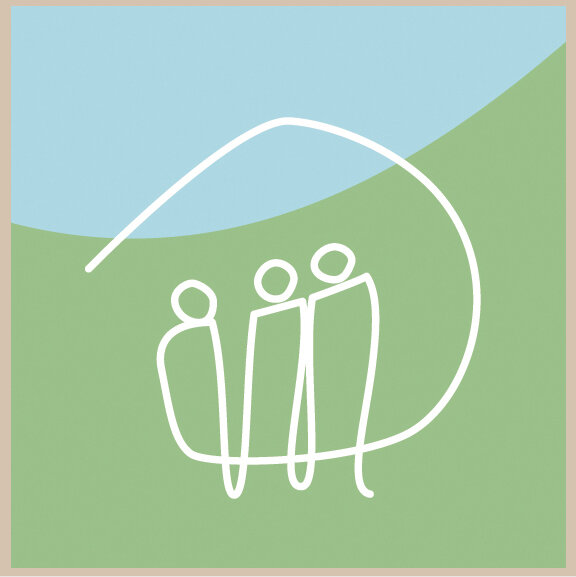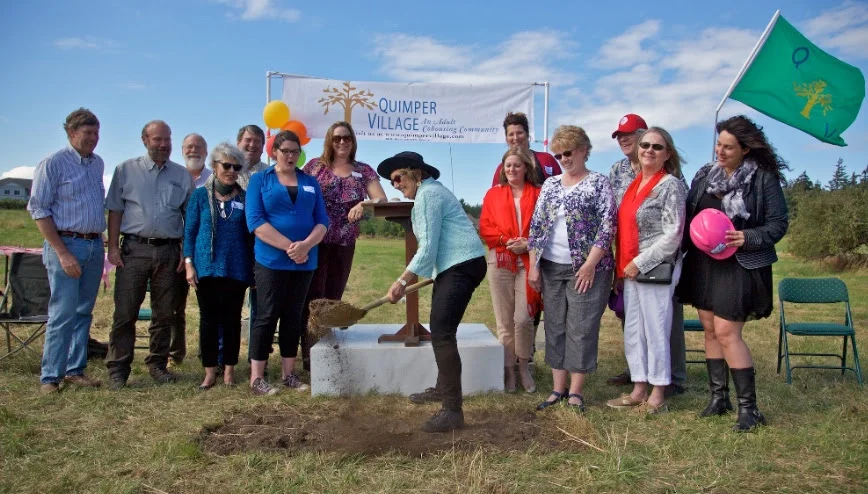Review by Charles Durrett
Original article by Jennifer Latson in Psychology Today
You know that we’re getting somewhere when the renowned magazine Psychology Today publishes a feature-length 10-page article about the importance of personal connections. They refer to loneliness as a disease and warn that we are in the midst of an epidemic—and apparently to everyone’s surprise, it can be deadly. It’s a bigger risk factor than obesity or smoking 15 cigarettes per day. Yes, even the married with family might be lonely and today according to this article, it’s a bigger threat than obesity or smoking, because it’s “hidden in plain sight.”
It’s now time for a serious intervention, suggests a Harvard physician, and cohousing is cited as being an example of such an intervention—but more on that later.
It is now proven that lonely people die more frequently from every other disease as well. Loneliness is strongly correlated with dementia, Alzheimer’s, and most obviously, depression. The stress and anxiety caused by loneliness produces anger, which in turn increase loneliness. One woman told me that her widowed grandfather shot himself “because no one came to visit.” It happens.
Our need for connection is so hardwired that loneliness hurts just like a physical wound and has similar physiological properties to the pains of extreme hunger, thirst or injury and eventually people will medicate to ameliorate that loneliness wound, leading to other long-term issues. A teenager from Nevada City Cohousing once wrote, “I can’t imagine a coho teenager using drugs—they just don’t have any wholes in their heart.” Perhaps simplistic but important to pay attention to nonetheless.
Everyone is lonely once in a while, but sustained loneliness puts people on edge and overly vigilant about being judged or rejected, which actually sabotages their ability to connect. I’m going to argue that some people are proactive and don’t wait for symptoms—they set themselves up for success earlier in life. Some folks actually believe that they will never get lonely and that may or may not be true—people even get lonely in cohousing—just not for sustained periods of time.
Then there’s the fact that a higher percentage of Americans are living alone than ever before. For the first time in American history more women over 18 are living without a husband, than with a husband. Among other things our ability to listen and empathize with others diminishes which will end up making you even more alone. If there is anything that teaches you to listen and learn, it’s living in community. A lot of people look at a home’s closets and kitchen, but the key question is where do neighbors gather to discuss the issues of the day. That’s a much more important quality of life question. That’s where cohousing comes in—meaningful sustained contact makes quality of life a lot easier. That’s why just visiting a nursing home doesn’t mitigate loneliness. The bonds that come from being your authentic self with others takes time and is also what I believe cohousing is particularly good at. It seems that the best we can do is to create community.
“We need communities that deliberately foster close social bonds. There’s a growing cohousing movement in which residents share chores and tend to common spaces together… There are about 700 in Denmark (population 5 million) and 160 in the U.S. (population 350 million) and more are being built,” – Psychology Today.
Just getting together with individuals on occasion is not enough.
In conclusion, 40% of the American population is feeling lonely today compared to 20% in 1980. That skews our ability or interest in living sustainably and makes it easier to pervert the body politic—divide and conquer is simply easier in the absence of community. It seems that people have 1/3 as many to confide in than they did in 1985. It seems that loneliness, just like the disease described earlier, is in fact extremely contagious—and “then the social fabric unravels.”
Sardinians live three decades longer than Americans. Why? Connection. The key to mitigating loneliness is reciprocity—I’ll make dinner on Monday, you make dinner on Friday—that’s cohousing—and fosters deep meaningful relationships.











